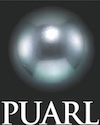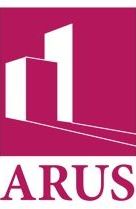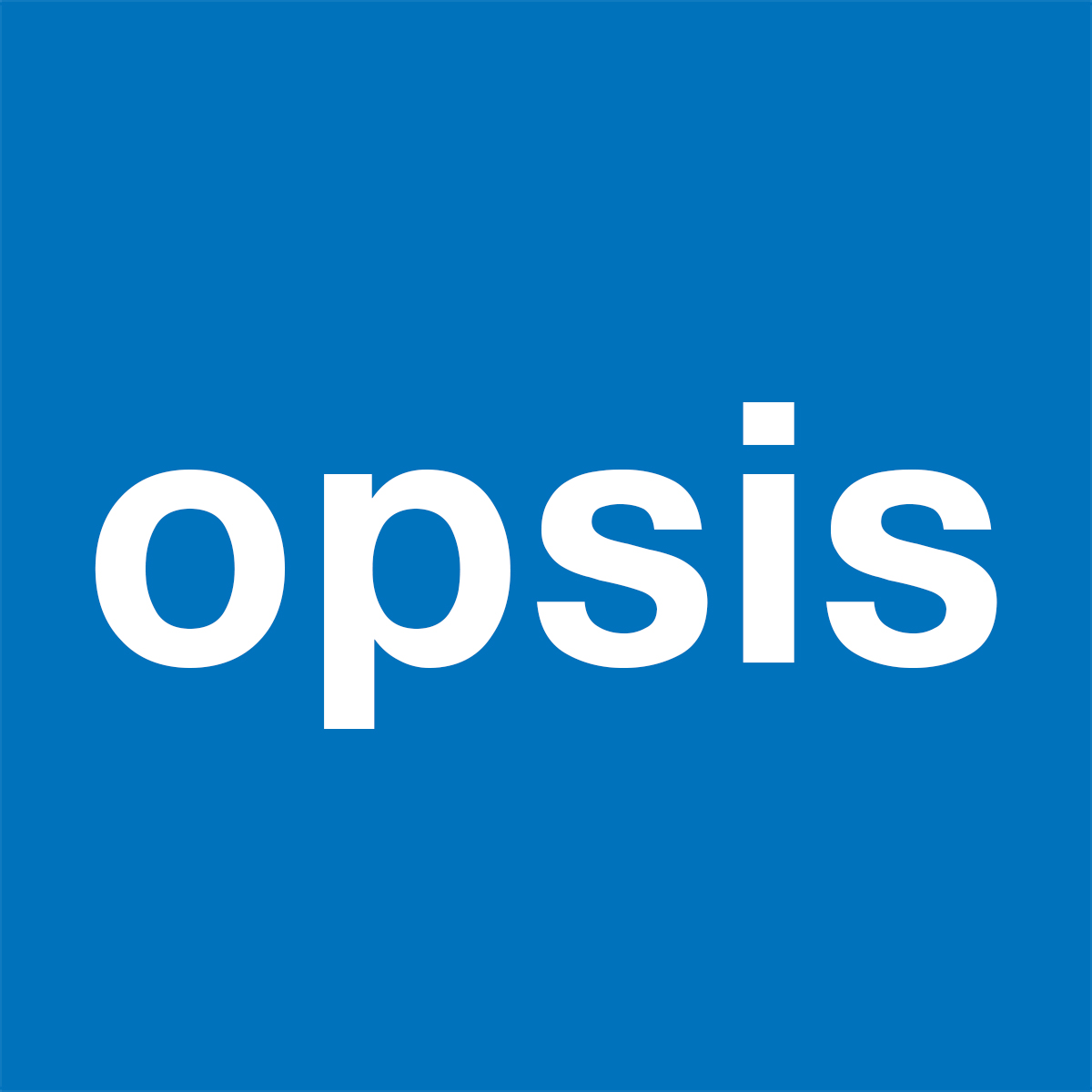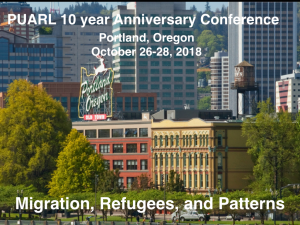PUARL 2016
2016 International PUARL Conference
Friday October 28 – Sunday, October 30, 2016
Conference website: https://blogs.uoregon.edu/puarl2016/
University of San Francisco, California
CALL FOR PARTICIPATION, PAPERS, AND CONTRIBUTIONS
Introduction
With the successful completion of the first three International PUARL Conferences at the University of Oregon in Portland in 2009, 2011, and 2013 (in cooperation with ARUS), and the latest conference carried out in cooperation with PURPLSOC, the ‘World Conference on Pattern Languages’ at the Danube University of Krems in Austria in the summer of 2015, the PUARL Conference Series has reached a new level of interdisciplinary involvement and a new international format and organization. The annual conferences will continue to alternate between Europe and the US covering the large and growing body of work in the emerging discipline of Regenerative Processes in our Urban Environments. We at the Portland Urban Architecture Research Laboratory are therefore pleased to announce the next conference entitled ‘The Regenerative City.’ It will focus on various aspects of Regeneration in the City, the nature and quality of evidence based approaches to urban challenges, including the pattern language approach, and planning and design issues that we are facing in urban environments and buildings throughout the world today. This conference will take place in San Francisco in the Fall of 2016, October 28-30 in cooperation with PURPLSOC, the Collaborative for Inclusive Urbanism (CIU), and University of San Francisco (USF).
The PUARL Conference provides a forum for researchers and practitioners from a variety of fields as well as for the broader public to come together to present and discuss theories and applications in fields including:
- Architecture, Urbanism, and Regional Development
- Design, Media, Arts, Product Design
- Information Technology and Computer Software
- Pedagogy, Education, and Learning
- Social Activism, Social Innovation, and Grassroots Movements
- Everyday Applications and Special Interests
Evidence-based Approaches in Support of Life in the Regenerative City
For our primary theme in this conference, we are looking at the concept of Regeneration in the City, a perspective that emphasizes the recurrent efforts to maintain, rebuild, restructure, strengthen, and rejuvenate the city for its continuing survival, resilience, and prosperity in the circle of ecological life. The concept of regenerative process and design can be seen as a new emphasis in the overall discourse on sustainability, one that departs from mainstream directions in sustainability in a progressive way by emphasizing a holistic and bottom-up approach akin to and influenced by evidence based approaches in research and design including the pattern language process. Regenerative processes include a large number of specific spatial processes, social and economic processes, ecological and sustainable processes, all working together in a panarchical fashion as one large system, helping generate whole and lively urban places.
Regenerative Approaches in the Inclusive City
Our secondary theme centers around the concept of the inclusive city where ideas of inclusion, equity, and justice are central, and patterns and pattern languages are viewed as a potential vehicle for change. We ask how evidence based approaches can enable the processes that encourage the built environment to become inherently more inclusive and just. What are the methods, ideologies, and vocabularies that can support the creation of such processes and outcomes in ways that are complex, complete, inclusive, diverse, resilient, and just?
Sub-Themes
Other related topics may deal with evidence based and pattern approaches in the Regenerative City, Resilient City, the Productive City, the City of Social Change (including the Refugee City) and other major challenges that we face in the city of today. All Sub-Themes include the following:
1. The Regenerative City and Urban Regeneration
The regenerative city like an ‘organism’ can regenerate itself in its various aspects and as a whole, similar to nature, based on its ecological structure and process that maintain and transform the city, its neighborhoods, buildings and population.
2. The Inclusive City and Inclusive Urbanism
Inclusive urbanism recognizes the deficiencies and current challenges that we face in our cities, neighborhoods, streets, and parks and buildings with regard to inclusion, equity, and justice, and tries to actively remedy this situation.
3. The Resilient City
The Resilient City is a city that has ‘fortified’ itself and its ecological system to survive major challenges and catastrophes from natural and man-made disasters. It also has the strength and flexibility to transform itself in the process of renewal and can adapt to new conditions.
4. The Productive City
The Productive City is based on its productive activities in its regenerative ecological life. Making things, manufacturing and start up efforts are aspects of the productive city.
5. The city of Social Change and the Refugee City
The City of Social Change and the Refugee City are cities that are being transformed socially through transformations from inside or outside forces. Current examples are refugee cities in Europe starting to be transformed by refugee populations.
6. Special Session on Evidence-Based Process and Pattern Languages
Because of particular interest, one session is dedicated to evidence based approaches to design including the original message of the pattern language as ‘research and practice in support of life in buildings, cities, and regions.’ This theme is open to papers exploring the quality, methods, and applications of patterns and pattern languages in scholarly research. With it, we hope to investigate, compare, and contrast the different approaches to pattern research utilized by various disciplines and schools of thought. Patterns are based on evidence of research and investigation.
In addition to papers concerning our primary and sub-themes, we welcome proposals of different kinds and contributions at the conference:
• Talks and Presentations
• Posters
• Workshops
• Exhibition Fairs
• Panel Discussions
Submission
Abstracts and proposals are welcome that address major conference themes and sub-themes are welcome. Proposals should be 250- 300 words. Please note in your submission which theme(s) your proposal addresses. Send your proposal to puarl@uoregon.edu with the subject 2016 PUARL Conference. Proposals will be peer reviewed by the Program and Academic International Committee. Acceptance will be announced by July 10 July 24, 2016. Once accepted, full papers can be submitted to PUARL by September 15 September 29, 2016 for inclusion in a conference record in 2017. The conference fee is $380, not including conference publications.
Important Dates
Proposals Due: June 10 June 24, 2016. The call for proposals is extended!
Acceptance Announcements: July 10 July 24, 2016
Full Papers Due: September 15 September 29, 2016
Conference Dates: October 28-30, 2016
Organizers
Hajo Neis, PUARL – Portland Urban Architecture Research Laboratory, University of Oregon
Seth Wachtel, University of San Francisco
Peter Baumgartner, Danube University Krems, Austria
CES – Center for Environmental Structure
PatternLanguage.com
Building Living Neighborhoods
PUARL Conference 2018
10 YEAR CONFERENCE
MIGRATION, REFUGEES, AND PATTERNS
Portland, Oregon, USA
Friday October 26 – Sunday, October 28, 2018
Combined PUARL and PLoP: Wednesday 24 – Sunday 28
https://blogs.uoregon.edu/puarl2018/
https://refugee.uoregon.edu/
PURPLSOC 2017
Following a very succesful PURAL2016, the world conference PURPLSOC2017 will be hosted by Danube University Krems from October 19th to 21st 2017. PURPLSOC is planned to take place every two years on an alternating basis with the International PUARL Conference at the University of Oregon in Portland.







